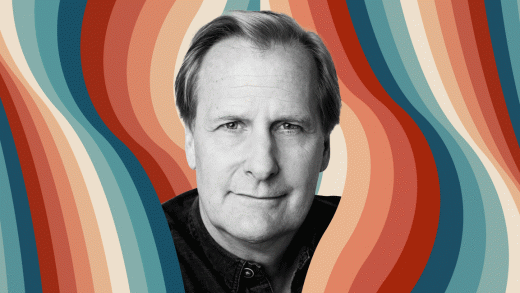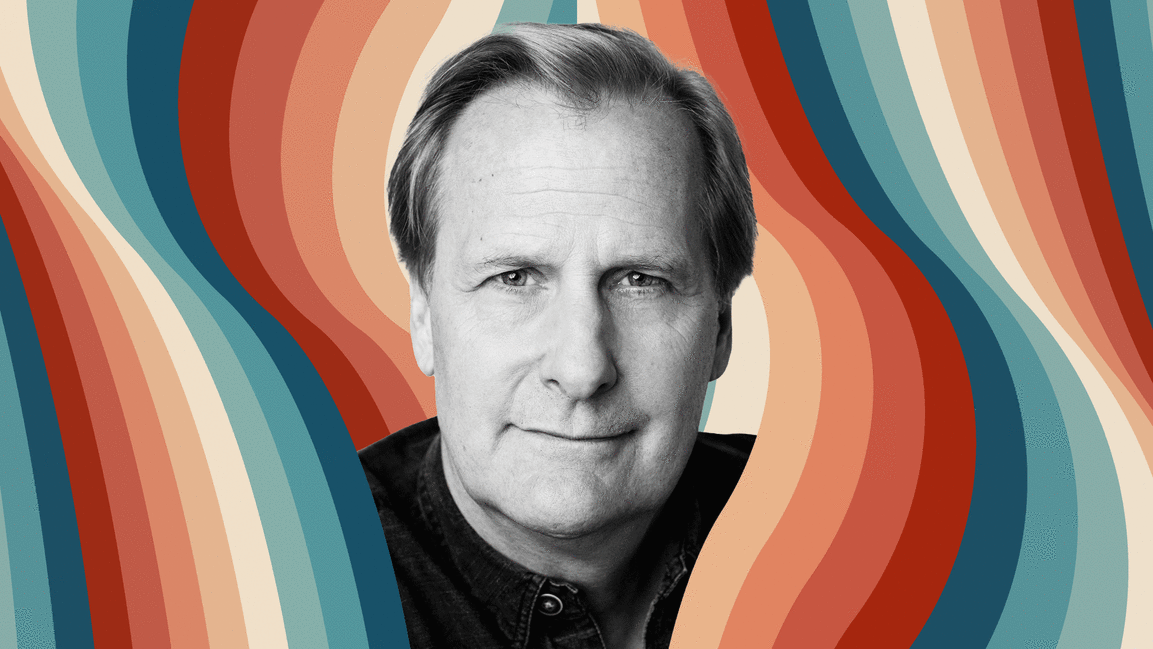Jeff Daniels explains the ‘thrill of working without a net’
Listen to the latest episode of Fast Company’s Creative Conversation podcast on Apple Podcasts, Spotify, RadioPublic, Google Podcasts, or Stitcher.
Scroll through Jeff Daniels’s resume and the word “range” comes to mind.
From his vast work in theater, film and TV, including The Purple Rose of Cairo, Dumb and Dumber, 101 Dalmatians, and The Newsroom, Daniels has a fearless approach to acting. But he’s not just jumping off the ledge, per se. He’s made a habit of identifying the weak spots in his craft, doing the work to improve, and when the opportunity presents itself, not shying away from trying something new.
Take, for example, his latest role in Showtime’s American Rust, based on Philipp Meyer’s 2009 novel of the same name.
Daniels plays Del Harris, the chief of police of a small Rust Belt town, shaken by a brutal murder. Harris takes up the investigation only to find that the son of the woman he loves could be at the center of the crime. Add to that the opioid crisis’s grip on the town, including on Harris, and it’s a layered drama and character unfamiliar to Daniels.
“I knew that I hadn’t played this guy before,” Daniels says in the latest episode of Fast Company‘s Creative Conversation podcast. “I also knew that I knew him. I grew up with him. Part of me was him. And I didn’t know which parts were which. So, you say ‘yes,’ and you figure it out on the way there. And that’s the thrill of working without a net.”
In this episode of Creative Conversation, Daniels discusses his controlled free fall into creativity, his reprisal of Atticus Finch in To Kill a Mockingbird on Broadway, and his music career he doesn’t mind you not knowing about.
Check out highlights from Daniels’s Creative Conversation episode below, and listen to the full episode on Apple Podcasts, Spotify, RadioPublic, Google Podcasts, or Stitcher.
Finding the darkness
“My heroes growing up were people like Peter Sellers, Dick Van Dyke, Jack Lemmon. They did a lot of comedy—their actions, their facial expressions were bigger. But I loved [Al] Pacino in Dog Day Afternoon. Whatever that was, whatever Al Pacino’s doing, it’s not what I know. There’s an element of danger or a secret or mystery that the great actors have in those roles. And I didn’t have that. And so, I started doing things like Godless. How do you play that? There’s a danger there. There’s a darkness in there. That led to other things, which ultimately is a lot of what American Rust is about with Del Harris: having a danger. I remember [thinking], bring the danger, bring the darkness—and the stillness that comes with that darkness.”
Into the unknown
I took The Comey Rule [playing former FBI Director James Comey], because I didn’t have a clue as to how I was going to do it. That’s the motivating factor at this age. There aren’t career moves going on anymore. It’s more about the roles that interest you that you don’t know how you’re going to do them. Stories well told are stories that when you stop after episode four, you turn to the audience and go, ‘What happens next?’—and they’re wrong. If you have a story that’s unpredictable, and yet continues to be plausible and believable and makes perfect sense, you’ve told it well.”
What music gives that acting doesn’t
“One hundred percent control. I control the writing, the playing, the performance, everything. It’s just fun. And it’s different. I don’t need a record label. I just need a website. We haven’t made any money on [the albums], but we broke even. So it’s just a creative outlet for me. It’s like Jim Carrey [painting]. Suddenly he’s doing these paintings over the last couple years that are phenomenal. I said [to Jim], ‘Why are you in [the acting] business anymore?’ because he [said], ‘Oh, I can’t stand it. I can’t stand what I’m doing.’ I said, ‘Don’t [act]—just paint. Look at the artist you are, man. Just go.’ So that’s what the music is for me.”
(37)



